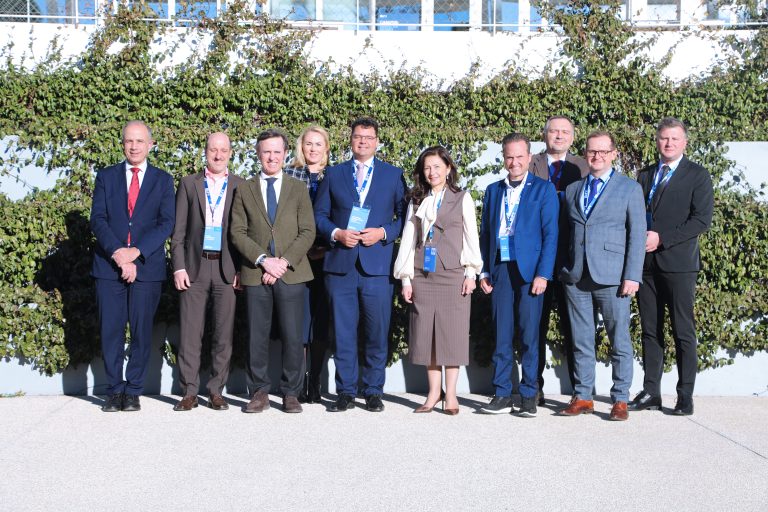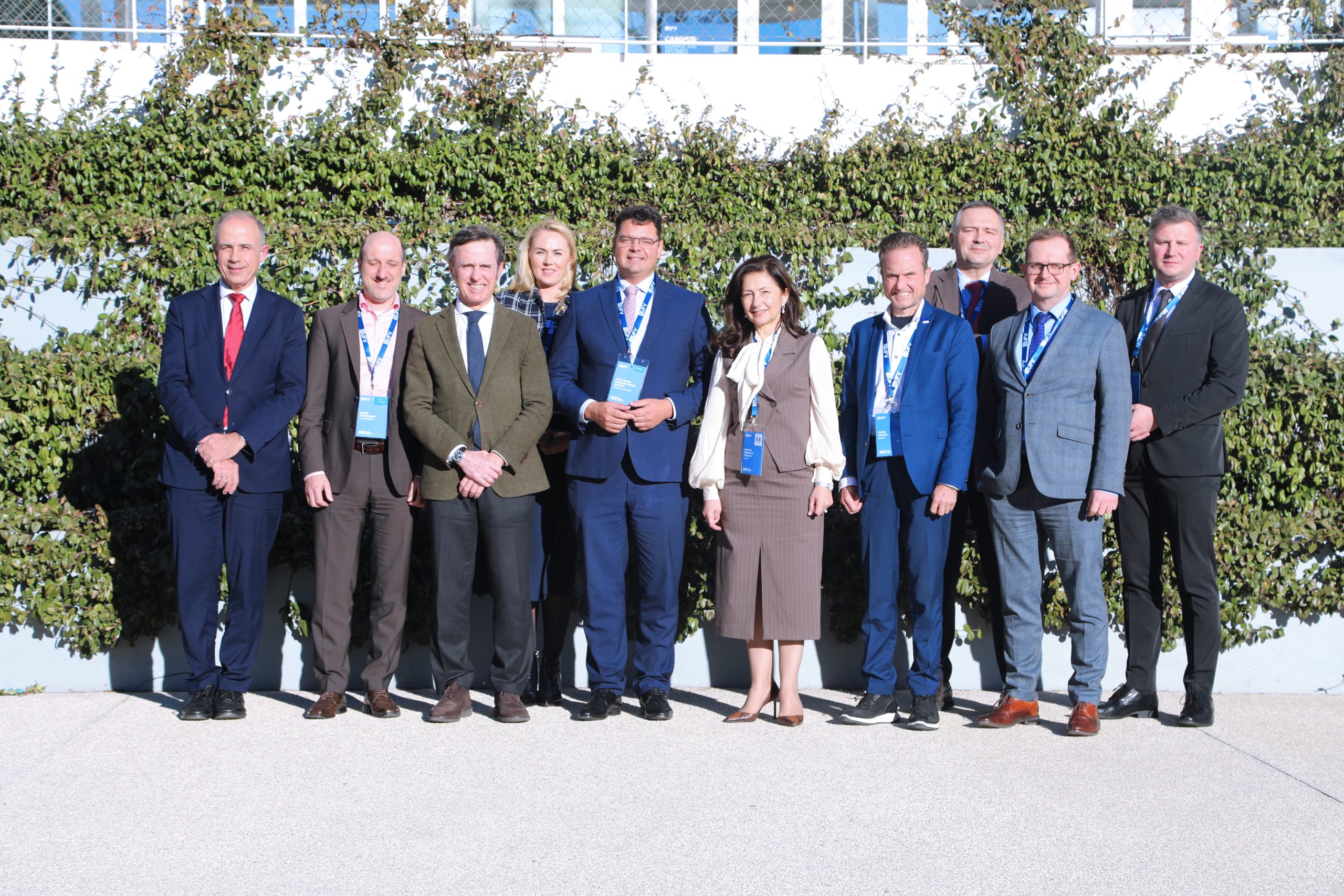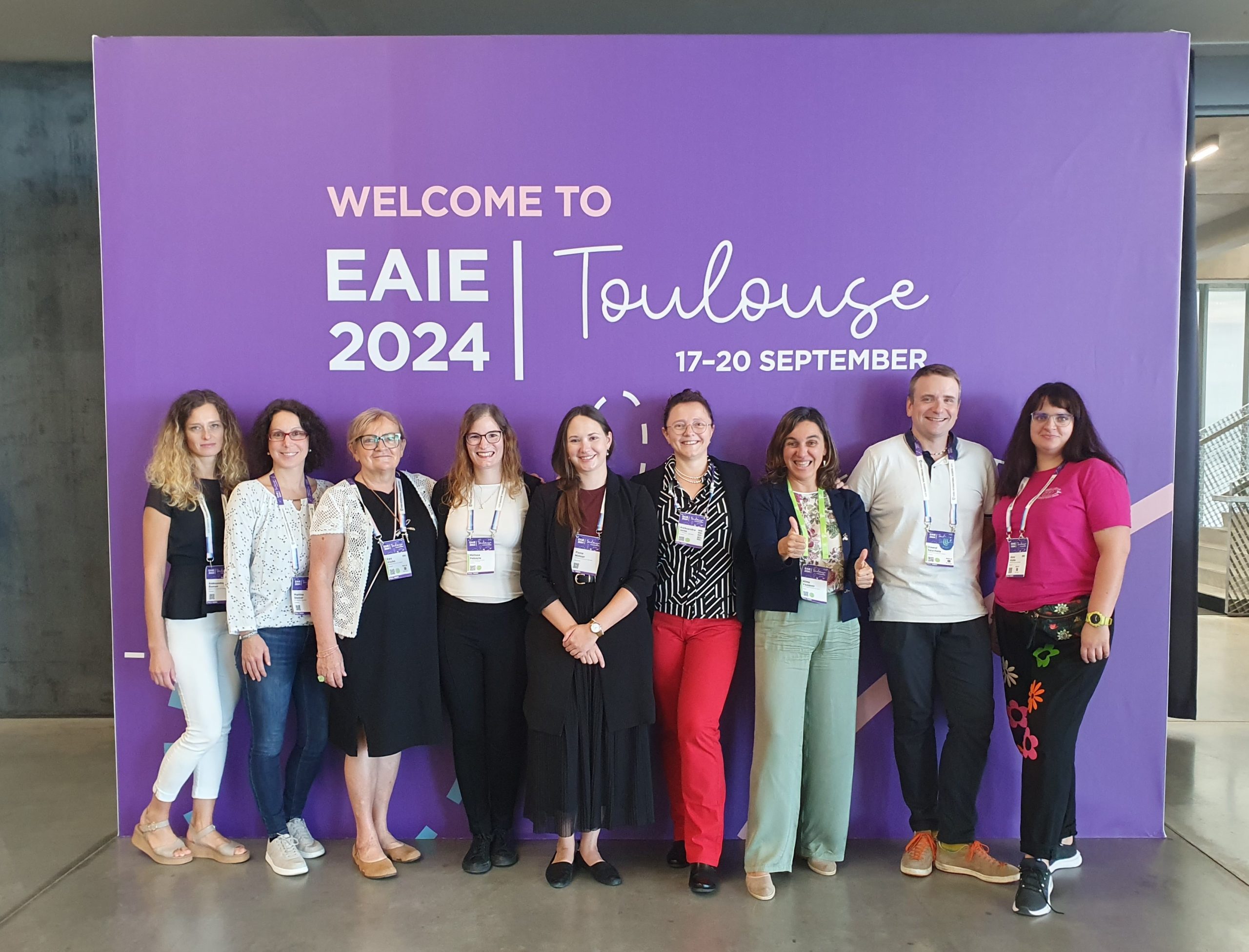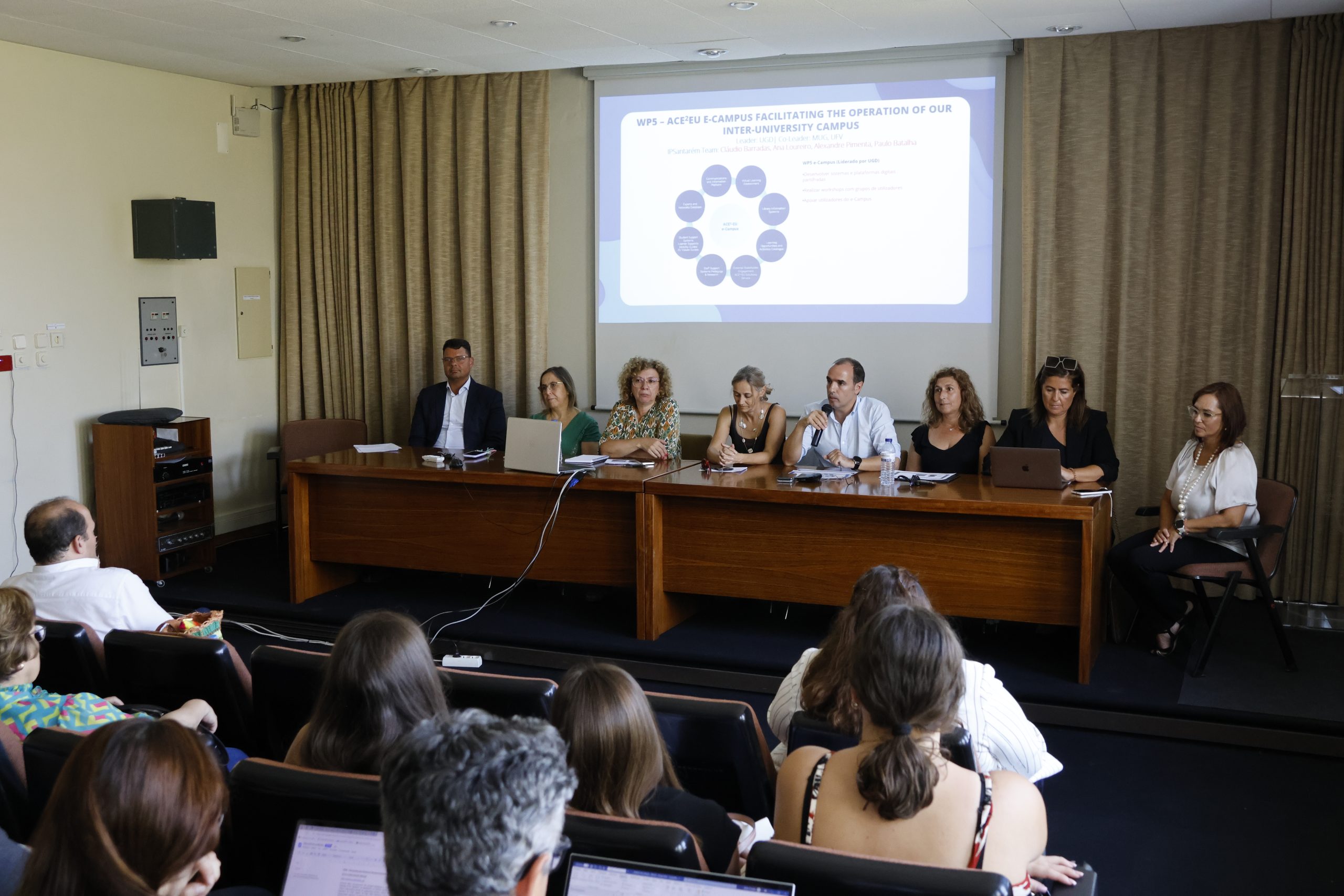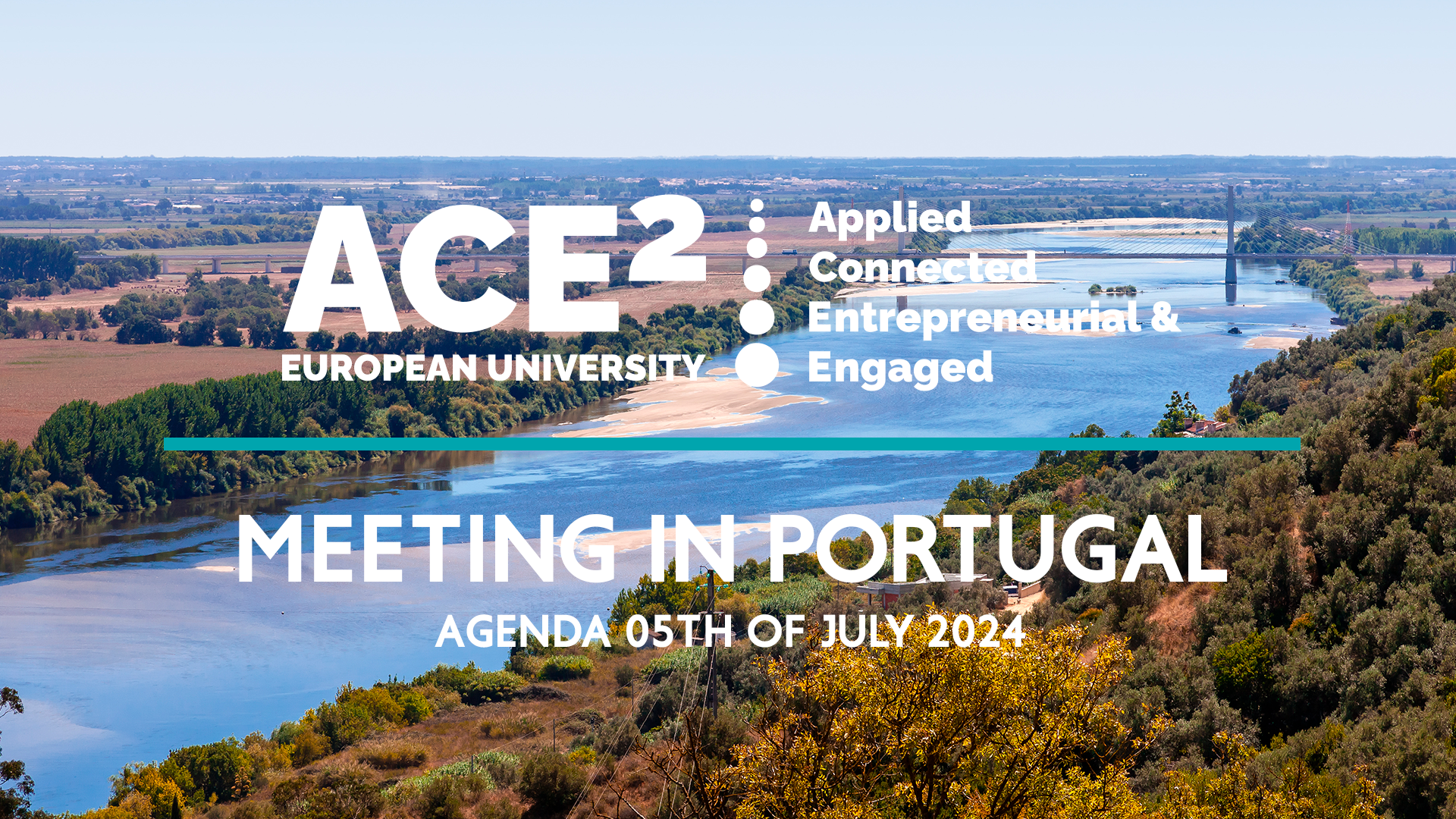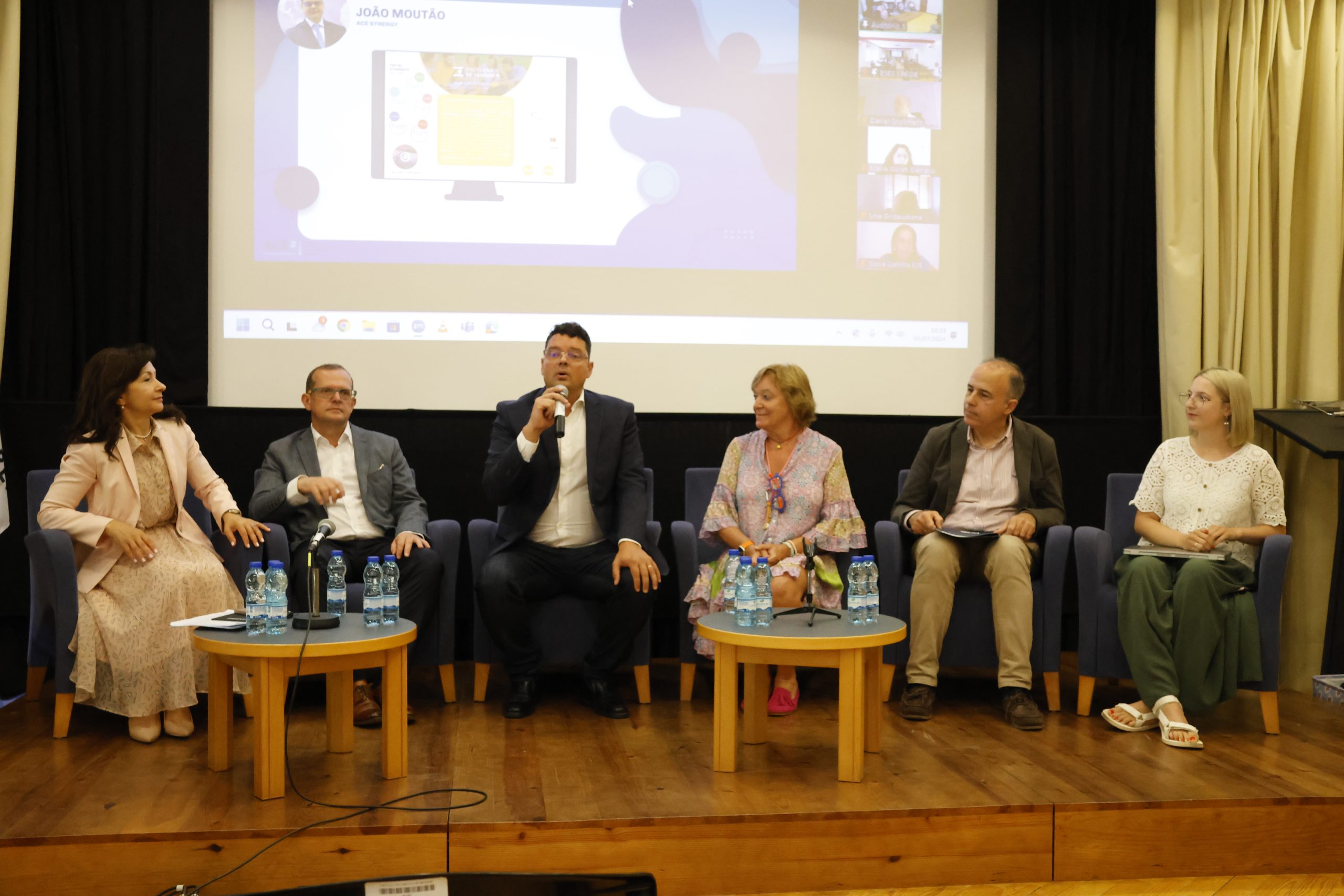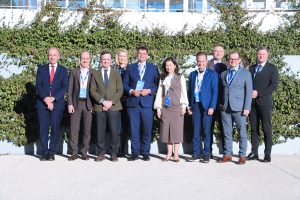
Alliance participating universities: Universidad Francisco de Vitoria (España), el Politécnico de Santarém (Portugal), la Carinthia University of Applied Sciences (Austria), la Goce Delcev University (Macedonia del Norte), la Kaunas University of Applied Engineering Sciences (Lituania), la Latvian Academy of Culture (Letonia), la Medical University of Gdańsk (Polonia), la Technische Hochschule Ingolstadt (Alemania) y la Universitatea Constantin Brâncuși din Târgu Jiu (Rumanía).
The ACE²-EU Alliance has culminated its launch event at the Francisco de Vitoria University (UFV) with an emotional closing ceremony that symbolizes the beginning of an ambitious project of educational transformation in Europe. During the event, paintings created by UFV Fine Arts students were presented, each one destined for one of the nine universities that make up this innovative international alliance: Universidad Francisco de Vitoria (España), el Politécnico de Santarém (Portugal), la Carinthia University of Applied Sciences (Austria), la Goce Delcev University (Macedonia del Norte), la Kaunas University of Applied Engineering Sciences (Lituania), la Latvian Academy of Culture (Letonia), la Medical University of Gdańsk (Polonia), la Technische Hochschule Ingolstadt (Alemania) y la Universitatea Constantin Brâncuși din Târgu Jiu (Rumanía).
he works, inspired by Dalí’s The Window, reflect the diversity and unity of the participating institutions, projecting a shared vision of collaboration and joint construction.
Significant progress in strategic planning
During the two days of the kick-off event, significant progress was made in the organization of the alliance. Among the most important activities, those responsible for each work package were assigned, the first strategic actions were defined and a roadmap for the coming months was established. This plan includes face-to-face and virtual meetings aimed at implementing the designed pilots, marking the beginning of a project that promises to generate a significant impact in the European university environment.
A collaboration that transcends borders
The ACE²-EU Alliance, co-funded by the European Union’s Erasmus+ program, unites nine universities of diverse profiles to jointly address the challenges of higher education through innovation, sustainability and inclusion. During the inaugural event, the transformative role of initiatives such as the APP Factory, the ARIES Incubator and the SPACE Center, which drive student-centered learning, foster research and entrepreneurship, and promote cultural and social awareness, was highlighted. In addition, the e-Campus will facilitate inter-university collaboration through shared digital resources.
Key words from Alliance participants
During the inauguration of the conference, Daniel Sada, rector of the UFV, underlined the relevance of this alliance as a driver of social transformation: “This alliance is not only an opportunity to innovate in education, but also to contribute to the common good through collaboration, sustainability and inclusion. We are taking an important step towards a global educational model that responds to the challenges of our society.”
For his part, João Moutão, president of Santarém Polytechnic, highlighted the importance of diversity within the partnership: “The richness of this network lies in the variety of educational and cultural perspectives. This allows us to address complex problems with innovative and multidisciplinary solutions.”
A promising future
With the culmination of this launch event, the ACE²-EU Alliance begins a four-year journey that will seek to strengthen internationalization and collaboration among European universities. In the coming months, the universities that are part of this alliance will work together on pilot projects that will integrate emerging technologies, interdisciplinary approaches and sustainable practices. This collective effort aims to train leaders in the service of global challenges, consolidating the role of higher education as an agent of change.
The working sessions that have been held these days at the UFV campus in Madrid (Spain) mark not only the closing of an event, but also the beginning of a transformative stage for higher education in Europe.

